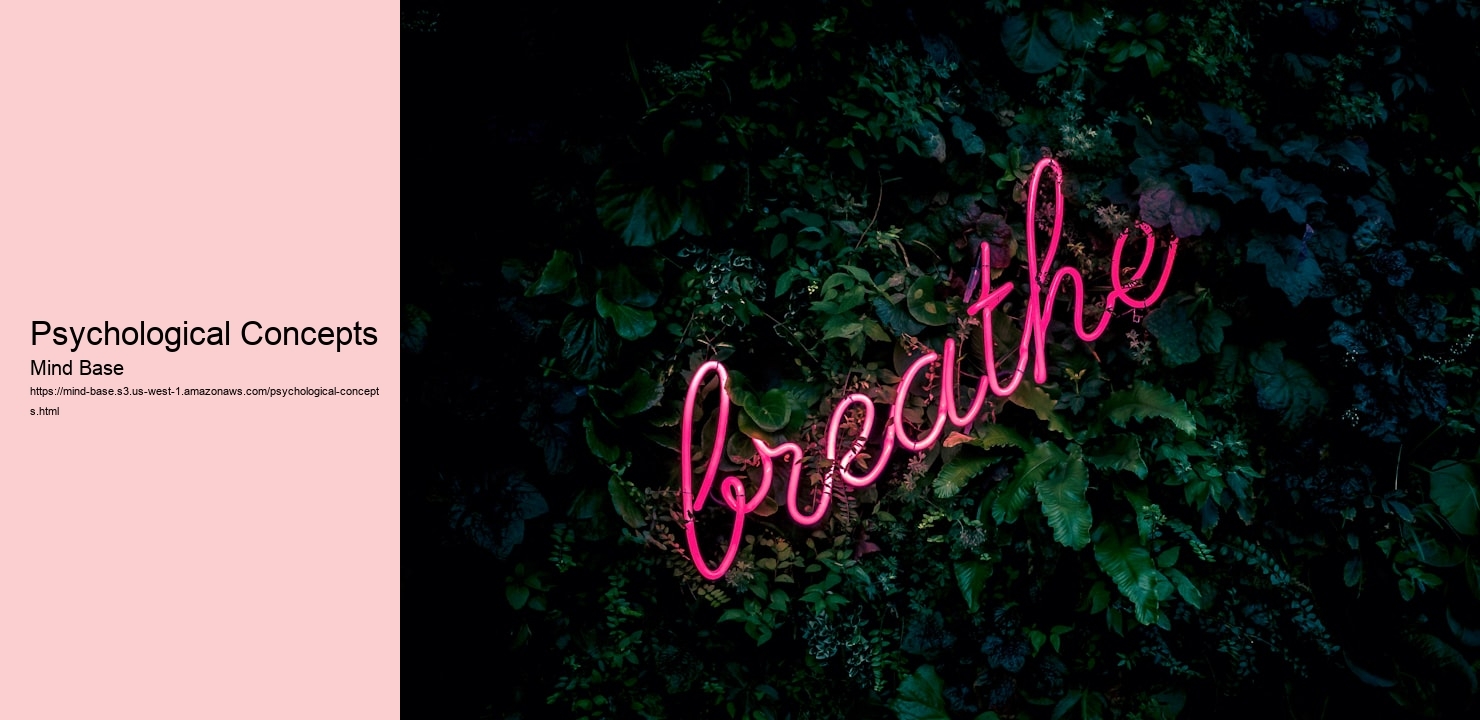
One significant barrier to emotional growth is resistance-both internal and external-that people may face during therapy. Internally, individuals might struggle with vulnerability or fear of change; externally, societal stigmas around seeking help can deter them from pursuing therapy altogether. Therapists in Calgary work diligently to break down these barriers by normalizing the therapeutic process and reinforcing the idea that seeking help is a proactive step toward well-being. This supportive environment encourages clients to confront deep-seated issues which may have been previously ignored or misunderstood.
engaging actively in one's emotional growth through therapy can lead to profound long-term benefits for both mental health and general well-being. Stress Management Individuals who invest time in understanding themselves gain not only clarity about their emotions but also develop tools for better communication and conflict resolution within relationships. Over time, this leads to improved self-esteem and confidence as people become more adept at navigating life's complexities with grace and empathy. As more Calgarians embrace the potential of therapy as a means for personal development, the community collectively moves toward greater psychological resilience.

Psychological balance is the state in which an individual maintains mental stability and emotional well-being, allowing them to navigate life's challenges effectively. In Calgary, therapists often emphasize the importance of this balance as it plays a crucial role in overall mental health. Achieving psychological balance involves managing stress, nurturing relationships, and fostering self-awareness. This process requires individuals to recognize their emotions and thoughts without being overwhelmed by them. A skilled therapist can guide clients in developing strategies to maintain this equilibrium, offering personalized approaches that account for unique life circumstances.
Therapists in Calgary employ various therapeutic modalities tailored to each client's needs, focusing on restoring or maintaining psychological balance. Cognitive Behavioral Therapy (CBT), mindfulness-based therapies, and other evidence-based practices are common methods used to address imbalances that manifest as anxiety or depression. These treatments aim not only to alleviate symptoms but also to equip clients with tools for self-regulation and resilience. By creating a safe space for exploration and growth, therapists help individuals understand underlying issues that disrupt their mental harmony.
Life's inevitable ups and downs can impact one's psychological balance significantly. Major life transitions such as career changes, relationship dynamics, or personal loss require adaptive coping mechanisms. Therapists in Calgary support clients through these transitions by helping them build resilience and develop practical skills for managing stressors. With professional guidance, individuals learn how to adaptively respond rather than react impulsively to life's challenges-an essential component of sustaining long-term psychological health.


In effect this means cultivating psychological balance is an ongoing journey rather than a destination. It requires continuous effort and adaptation as one navigates different phases of life. The assistance of a trained therapist can be invaluable on this journey towards achieving lasting emotional equilibrium. Whether through therapy sessions focused on cognitive restructuring or mindfulness exercises aimed at enhancing present-moment awareness, the goal remains the same: empowering individuals to live balanced lives enriched with purpose and fulfillment.
Therapy has undergone significant transformations over the years, particularly in cities like Calgary where diverse needs meet innovative solutions. Originally, therapeutic practices were rooted in ancient traditions and often intertwined with spiritual or religious rituals. Psychologist Over time, the scientific approach took precedence, leading to more structured methodologies aimed at addressing specific health concerns. In Calgary, this transition mirrors global trends but also reflects the unique cultural mosaic of the city, hwihc influences therapy methods to accommodate various backgrounds and beliefs.
As society began recognizing the importance of mental health alongside physical well-being, psychotherapy emerged as a pivotal aspect of treatment. This development meant that therapy was no longer just about alleviating physical symptoms but also about understanding and treating emotional and psychological issues. In Calgary, therapists have embraced this evolution by offering a variety of psychotherapeutic approaches tailored to individual needs. Techniques such as cognitive-behavioral therapy (CBT), dialectical behavior therapy (DBT), and mindfulness are increasingly integrated into practice, reflecting a broader acceptance of mental health care.

The incorporation of technology into therapeutic practices marks another significant milestone in their evolution. Digital platforms now facilitate remote consultations, making therapy more accessible than ever before for Calgary residents who may face barriers due to geography or mobility issues. Additionally, apps designed for mental health monitoring offer clients tools to track their progress between sessions. University of Calgary - Psychology This technological shift not only increases convenience but also enables therapists in Calgary to reach a wider audience while maintaining personalized care.
With growing awareness around wellness and self-care, holistic therapies are gaining traction among Calgarians seeking comprehensive healing experiences. The integration of alternative therapies such as yoga, meditation, and acupuncture with traditional counseling techniques illustrates a trend towards addressing the mind-body connection holistically. This approach is particularly appealing in a city like Calgary where outdoor lifestyles encourage an appreciation for balance between physical activity and mental relaxation.

Psychological health includes emotional, emotional, and social well-being, influencing cognition, assumption, and behavior. According to the World Health Company (WHO), it is a "state of health in which the individual recognizes his/her capabilities, can manage the regular stresses of life, can work successfully and successfully, and can add to his/her neighborhood". It furthermore figures out exactly how an individual takes care of stress, interpersonal relationships, and decision-making. Psychological health and wellness consists of subjective health, viewed self-efficacy, freedom, skills, intergenerational reliance, and self-actualization of one's intellectual and psychological potential, to name a few. From the perspectives of positive psychology or holism, psychological wellness may consist of an individual's ability to enjoy life and to produce an equilibrium in between life tasks and efforts to achieve mental resilience. Social distinctions, individual ideology, subjective evaluations, and contending professional concepts all influence how one defines "mental wellness". Some very early signs associated with mental health troubles are sleep irritation, absence of power, absence of hunger, thinking of damaging oneself or others, self-isolating (though introversion and seclusion aren't necessarily undesirable), and frequently zoning out.
.Psychotherapy (additionally emotional therapy, talk treatment, or talking therapy) is the use of emotional approaches, specifically when based on normal personal interaction, to help an individual adjustment behavior, boost joy, and get over troubles. Psychotherapy aims to boost an individual's wellness and psychological health, to fix or mitigate frustrating actions, beliefs, obsessions, ideas, or emotions, and to boost relationships and social abilities. Countless sorts of psychotherapy have actually been made either for private adults, households, or children and teens. Some types of psychiatric therapy are taken into consideration evidence-based for dealing with diagnosed mental illness; other kinds have actually been criticized as pseudoscience. There are hundreds of psychotherapy methods, some being minor variations; others are based upon really different conceptions of psychology. Most strategies entail one-to-one sessions, in between the customer and therapist, yet some are carried out with teams, including couples and households. Psychotherapists might be psychological health experts such as psychiatrists, psycho therapists, psychological health and wellness registered nurses, medical social workers, marital relationship and family members therapists, or professional therapists. Therapists might additionally originate from a range of other histories, and depending upon the jurisdiction may be legitimately managed, willingly managed or unregulated (and the term itself may be safeguarded or not).
.Post-traumatic stress counseling in Calgary uses trauma-focused therapies like EMDR to heal PTSD. Therapists provide a safe space to process trauma and reduce its impact.
Therapy for eating disorders in Calgary uses CBT and counseling to address unhealthy food patterns. Specialists support recovery with tailored plans for physical and mental health.
Emotional support counseling in Calgary offers a compassionate space to process feelings and challenges. Therapists provide guidance to enhance emotional resilience and well-being.